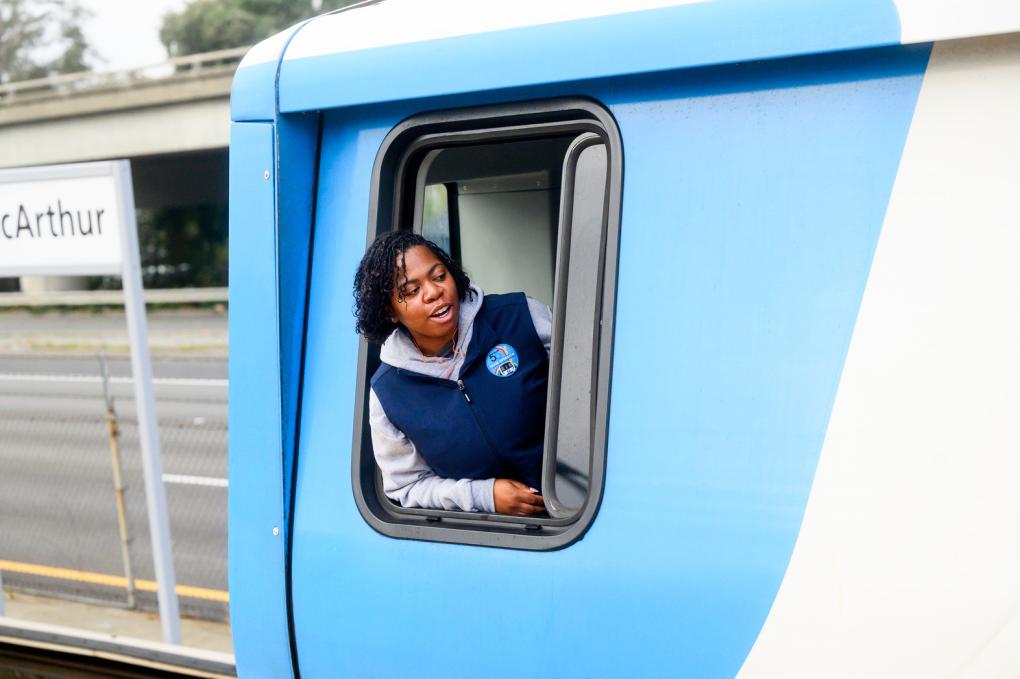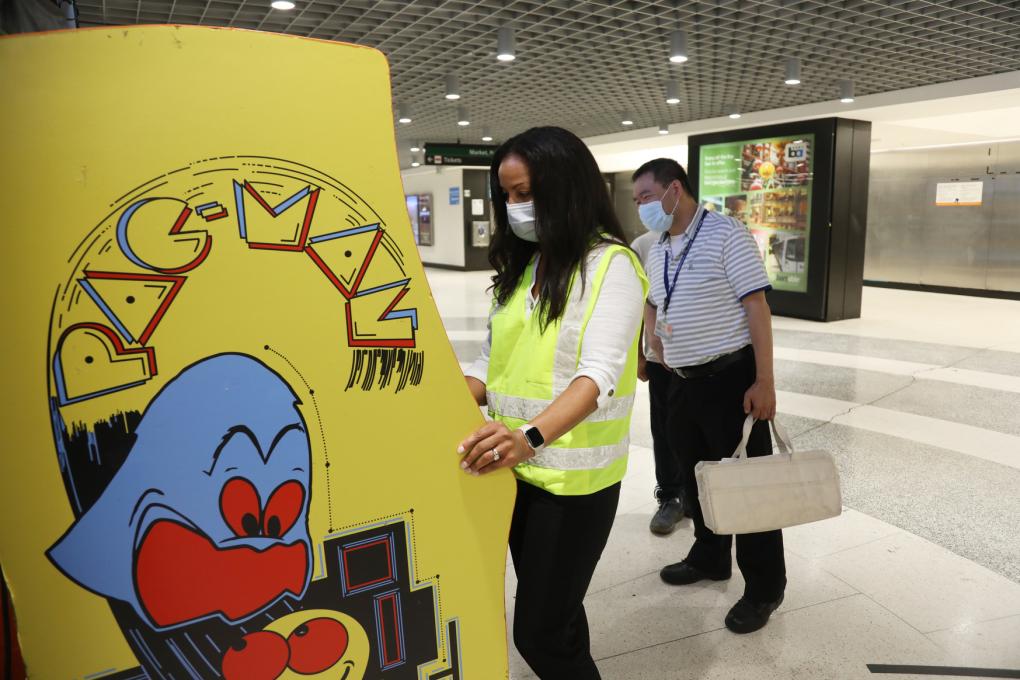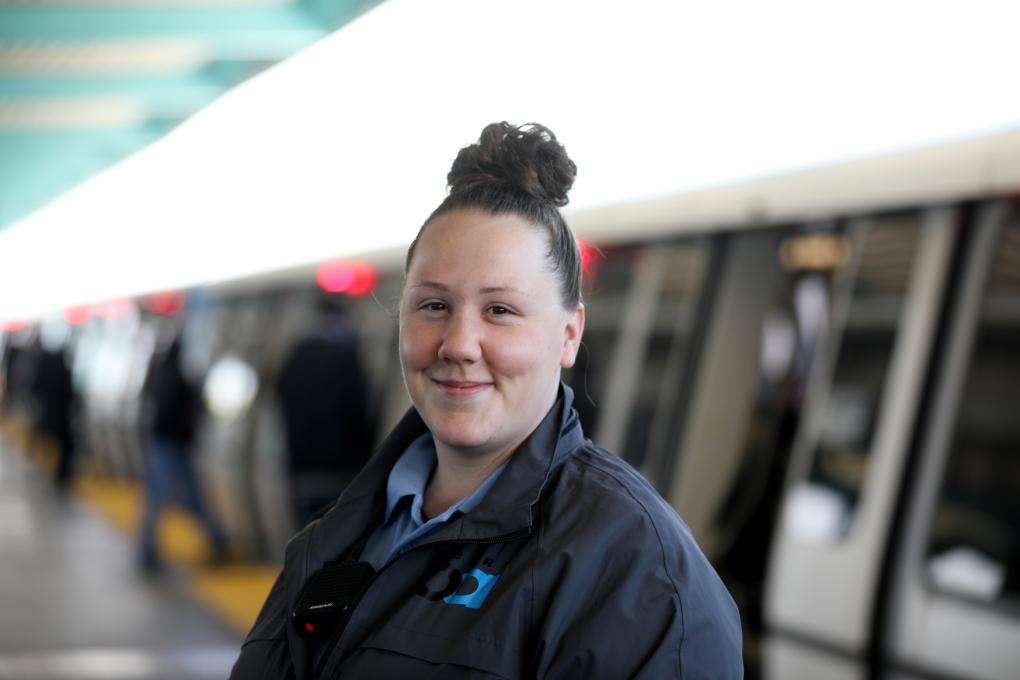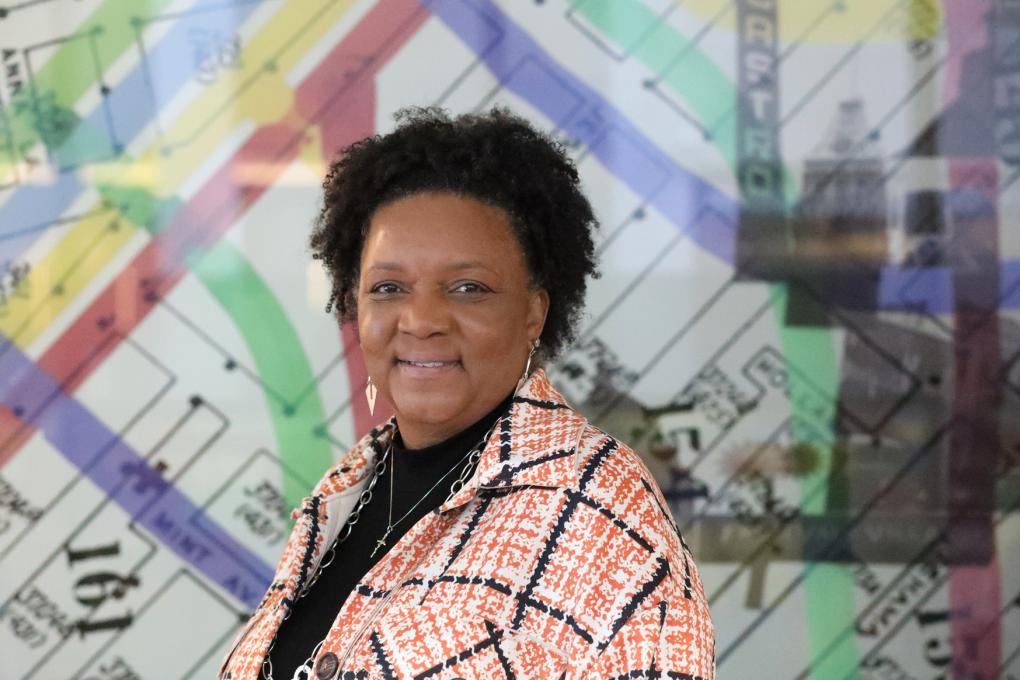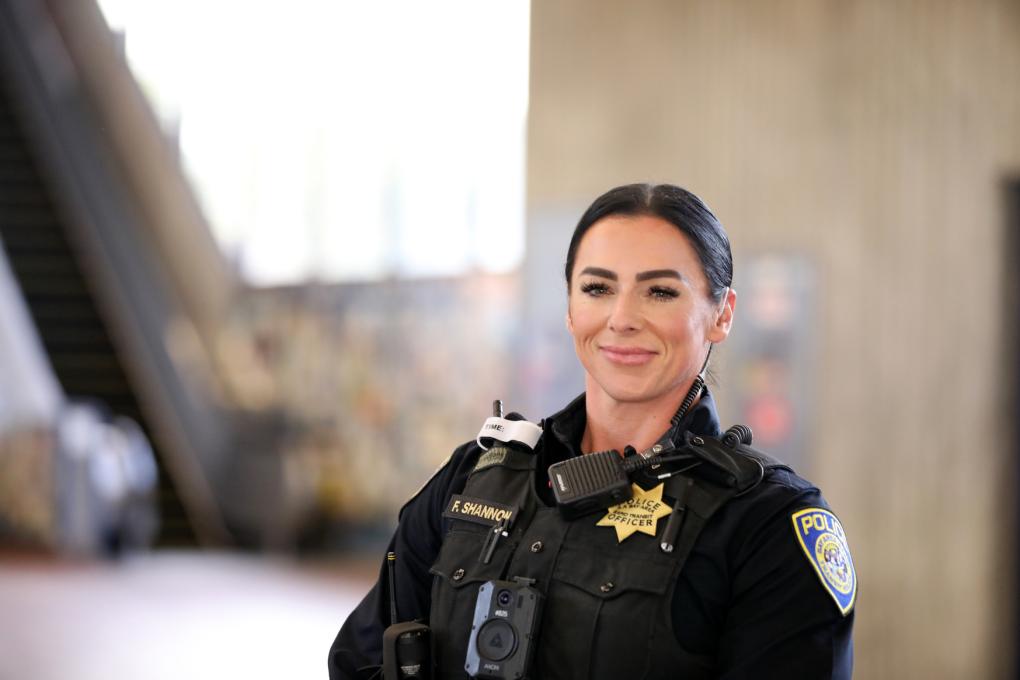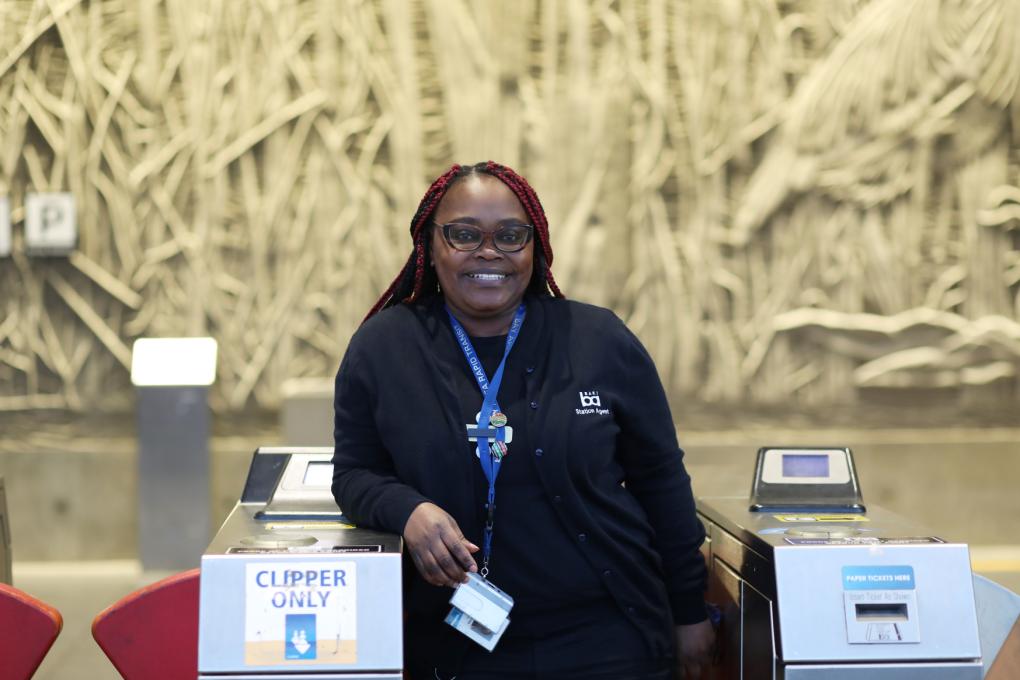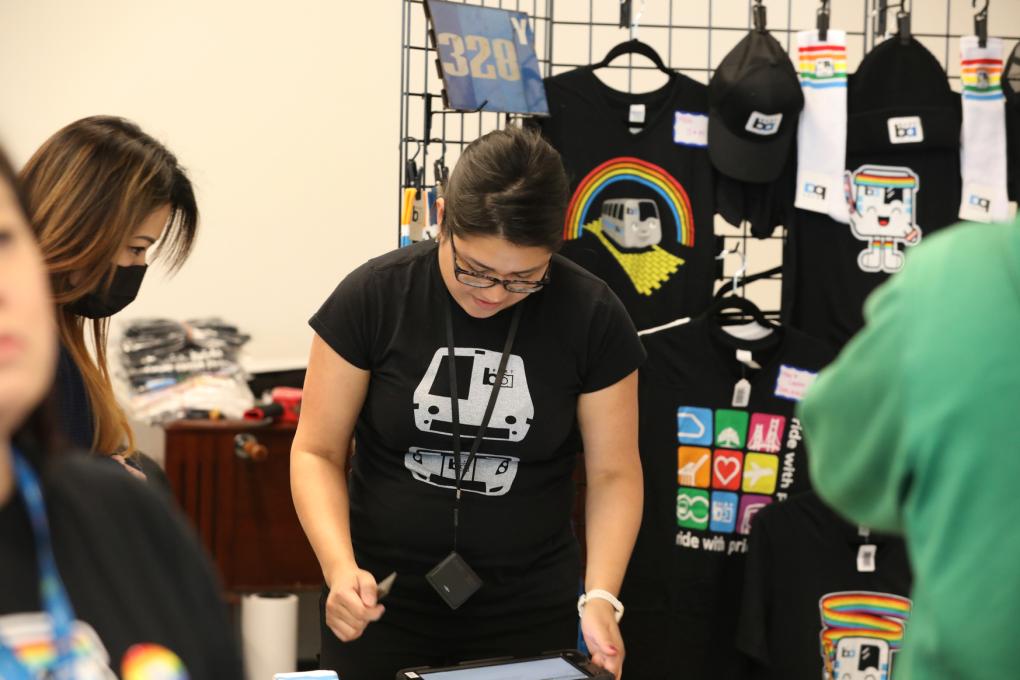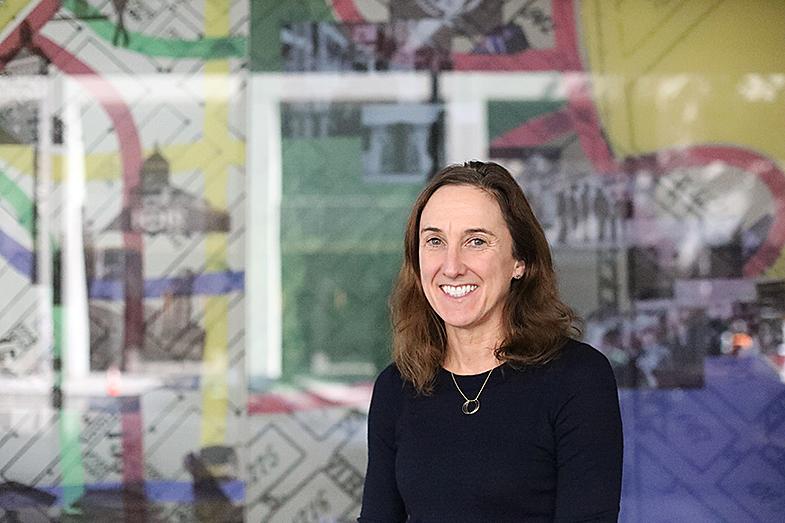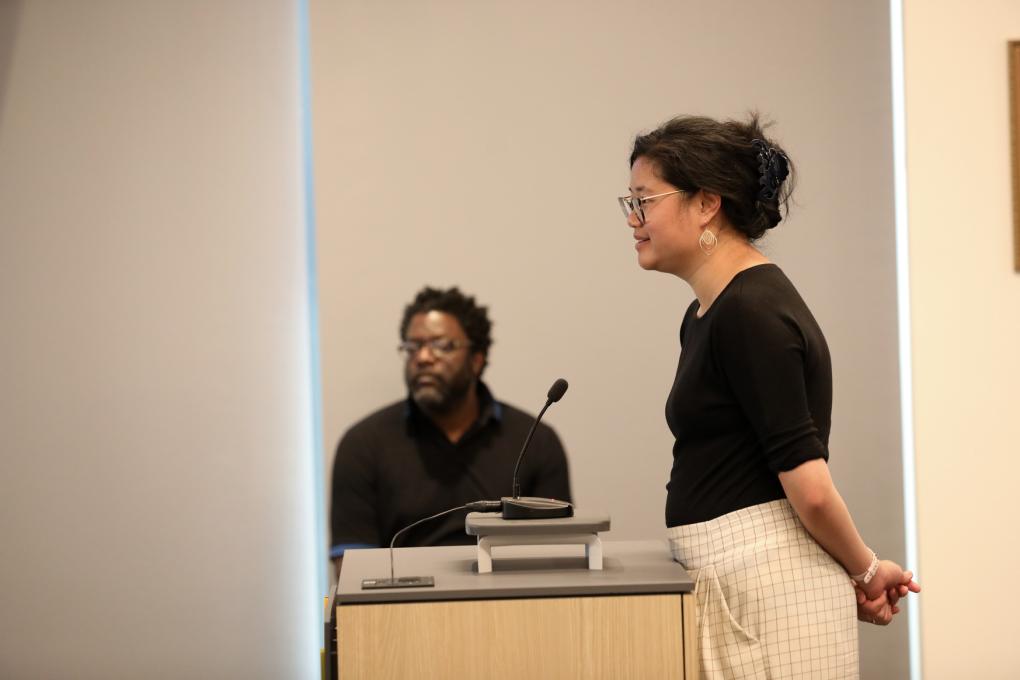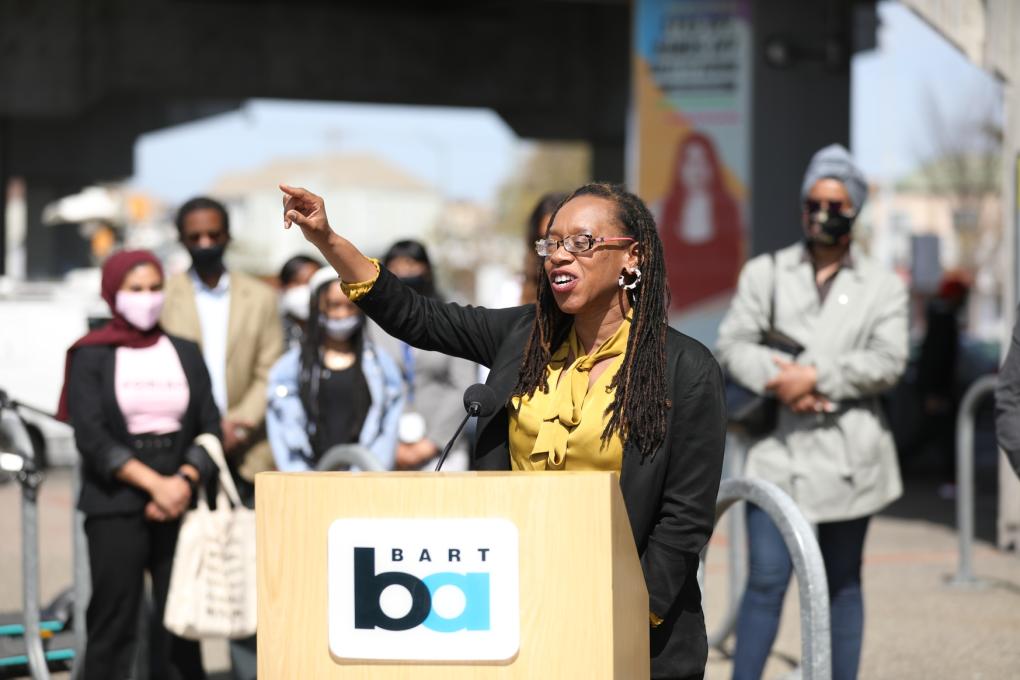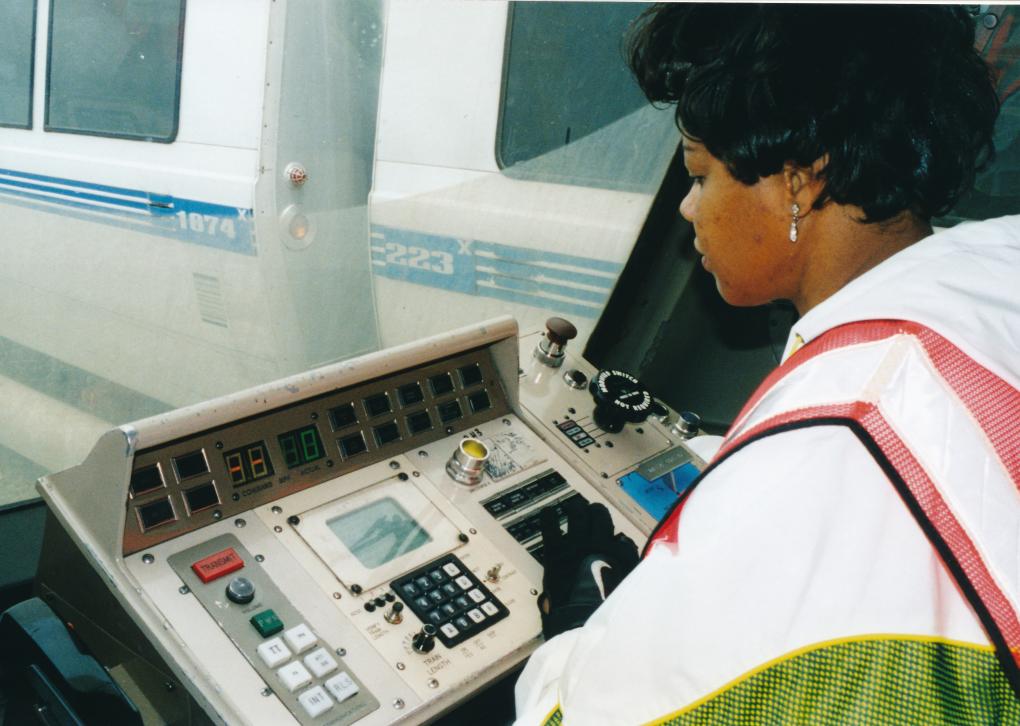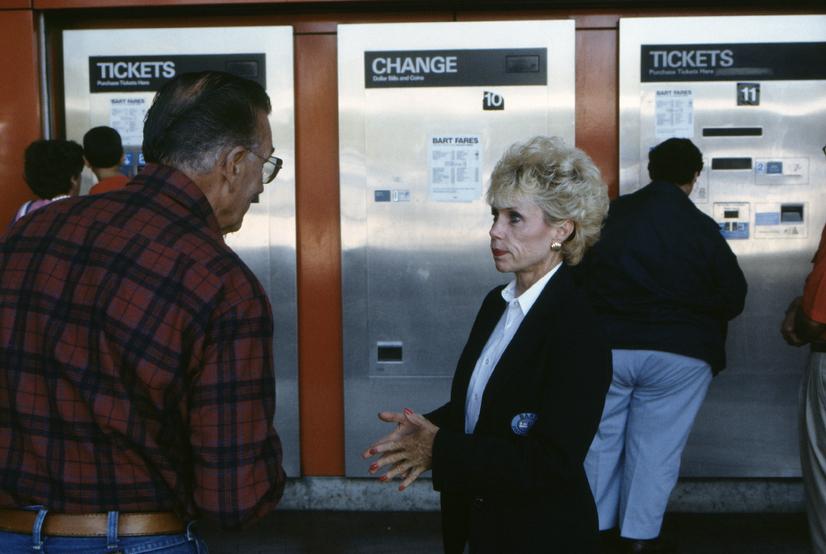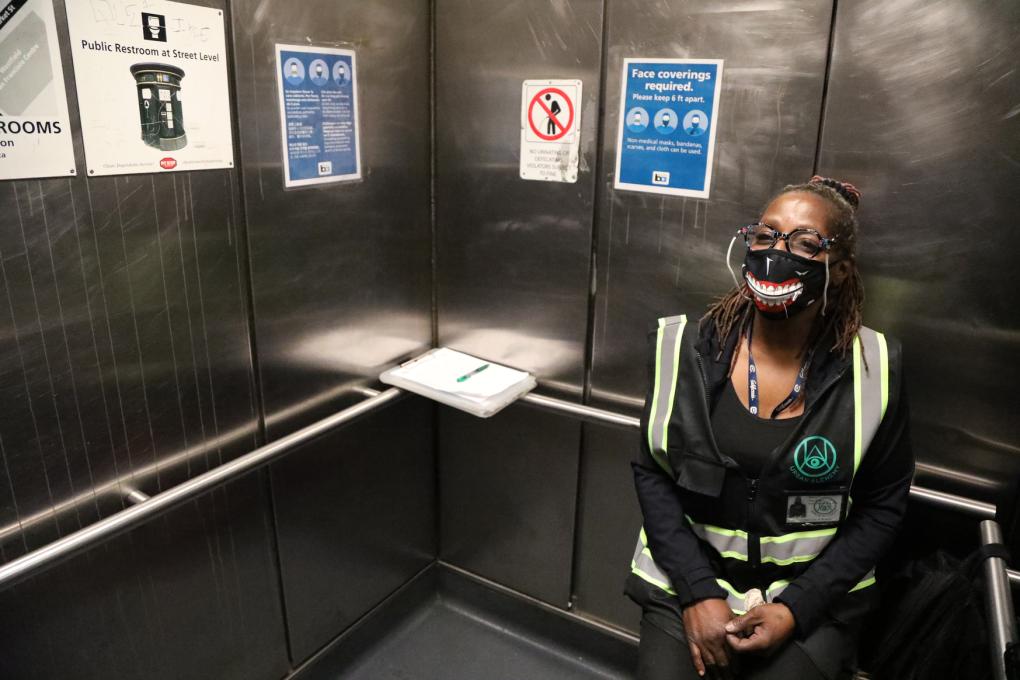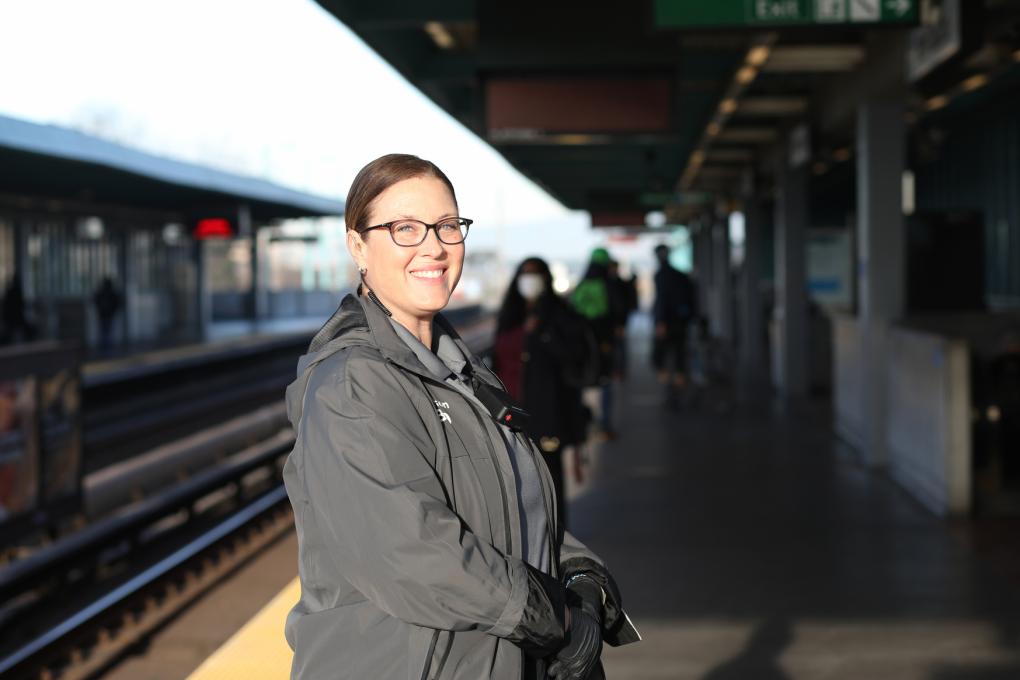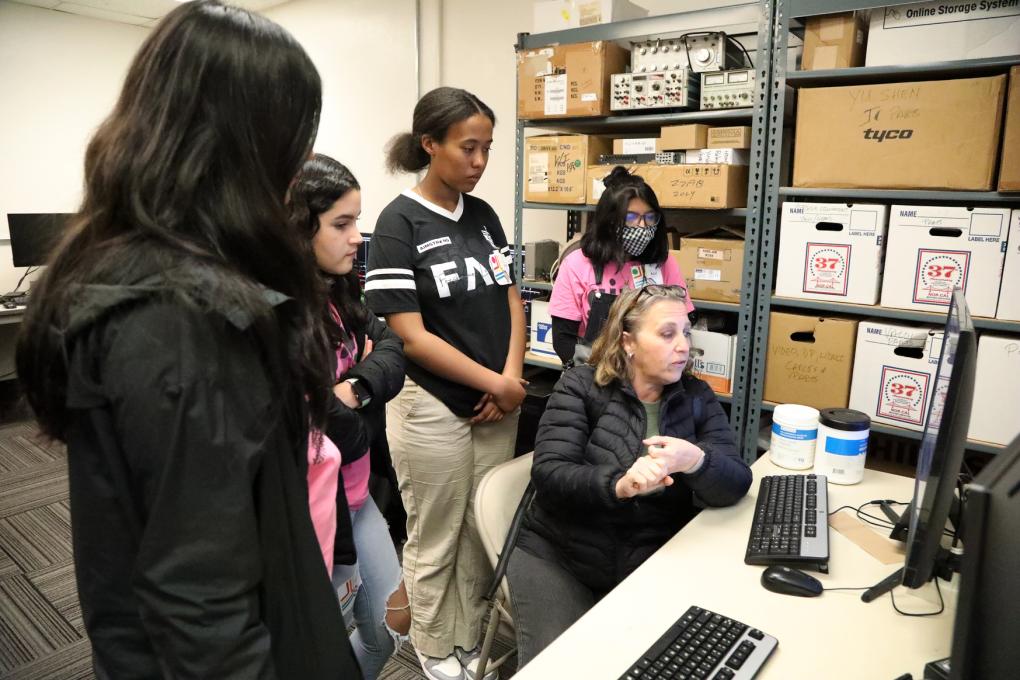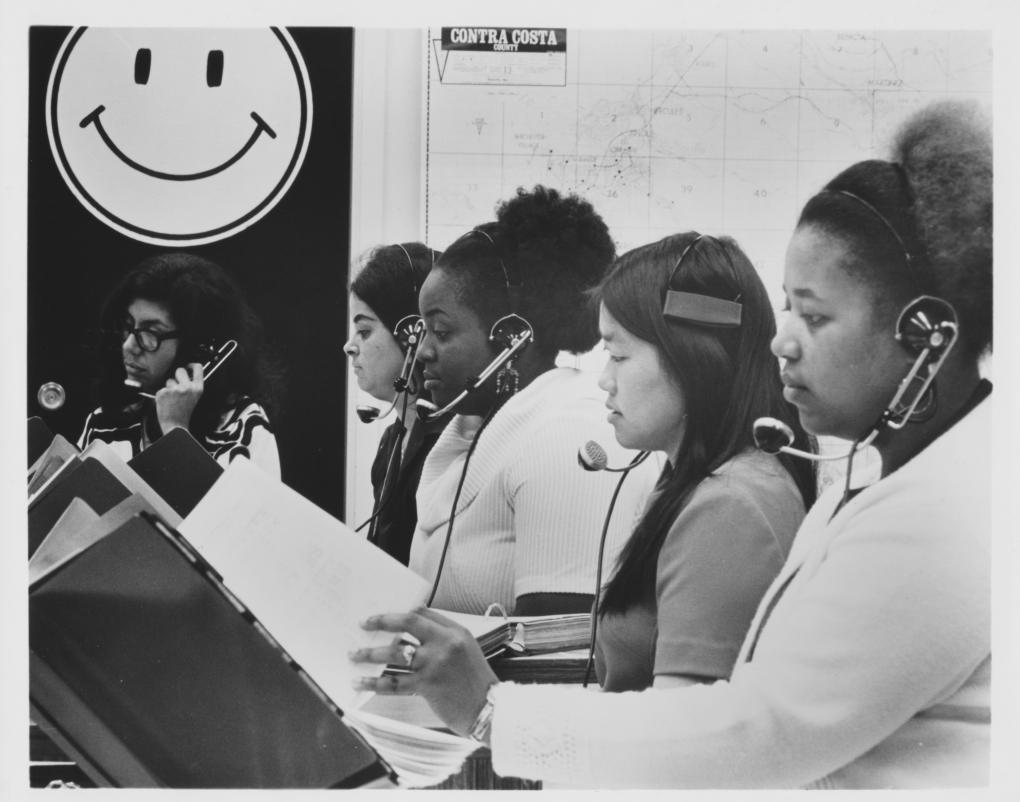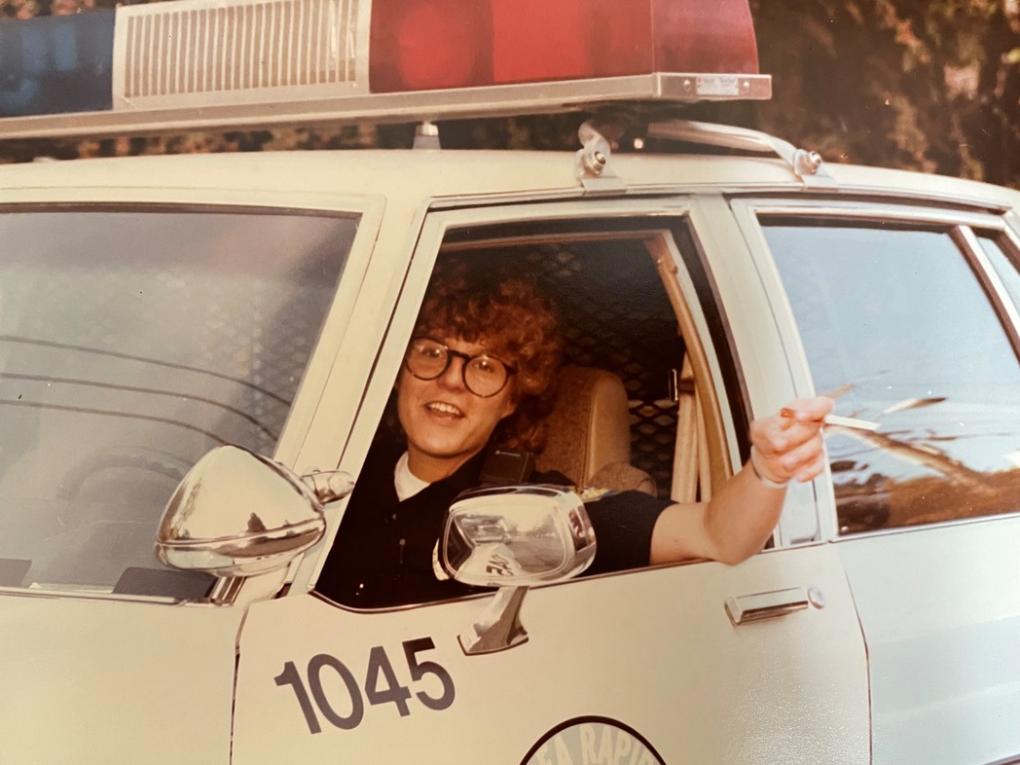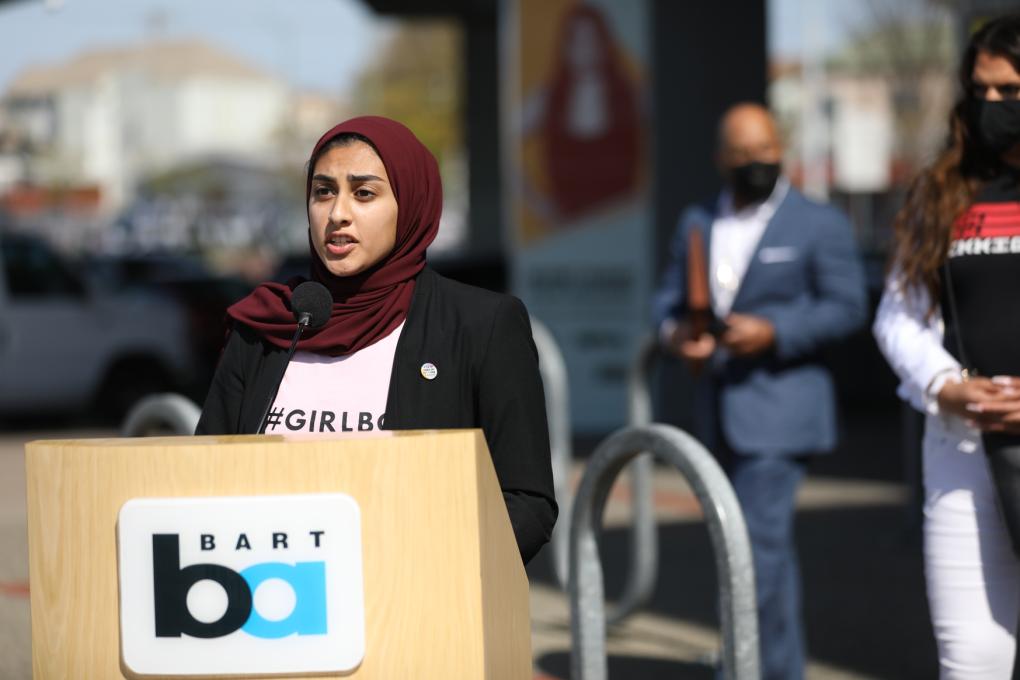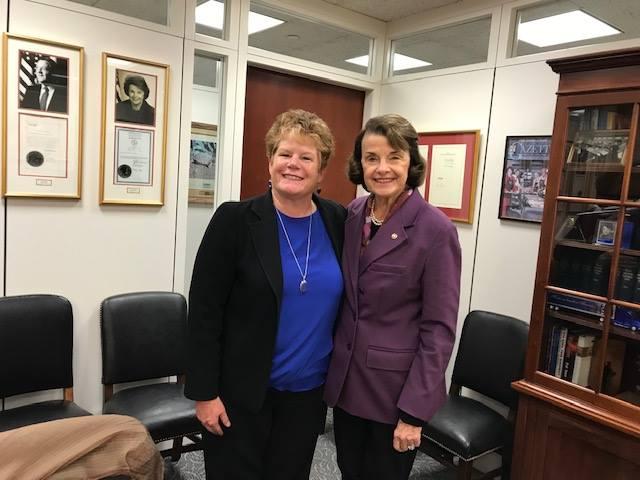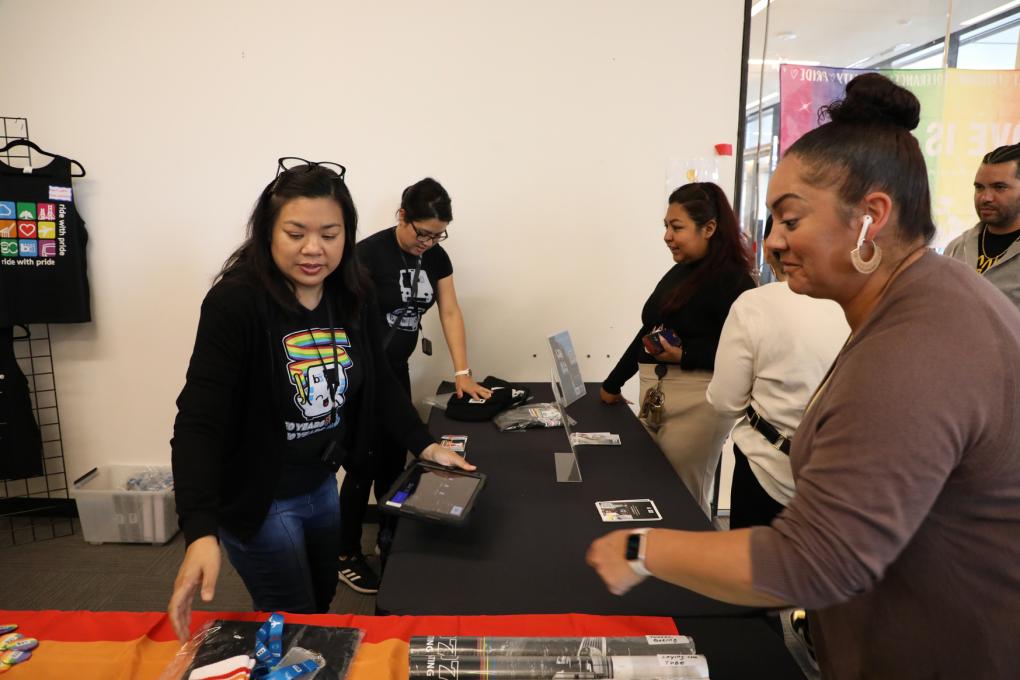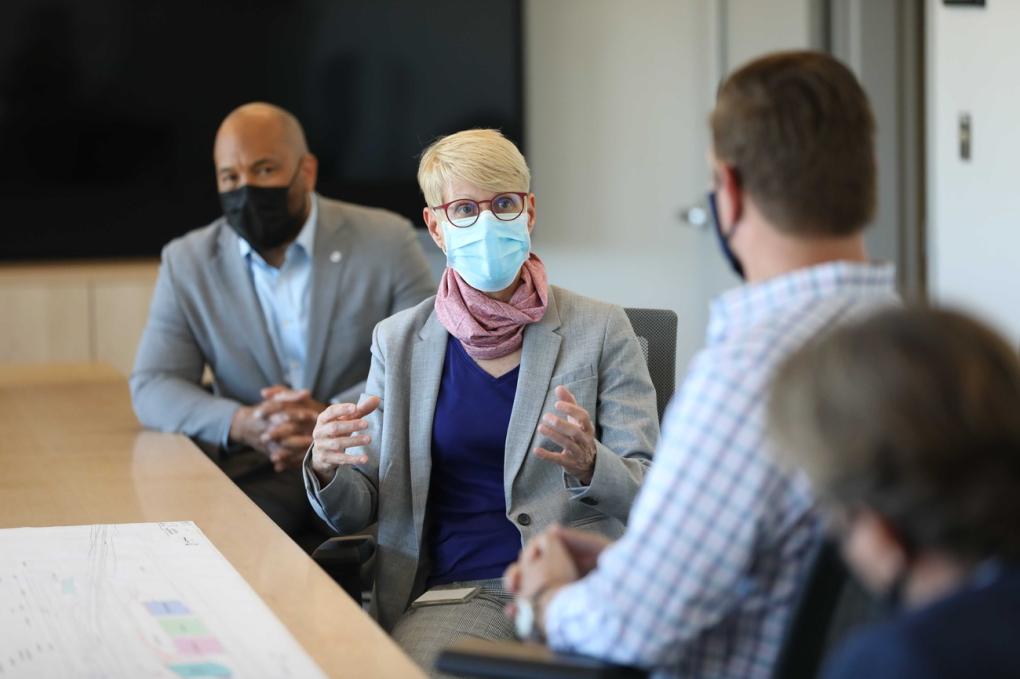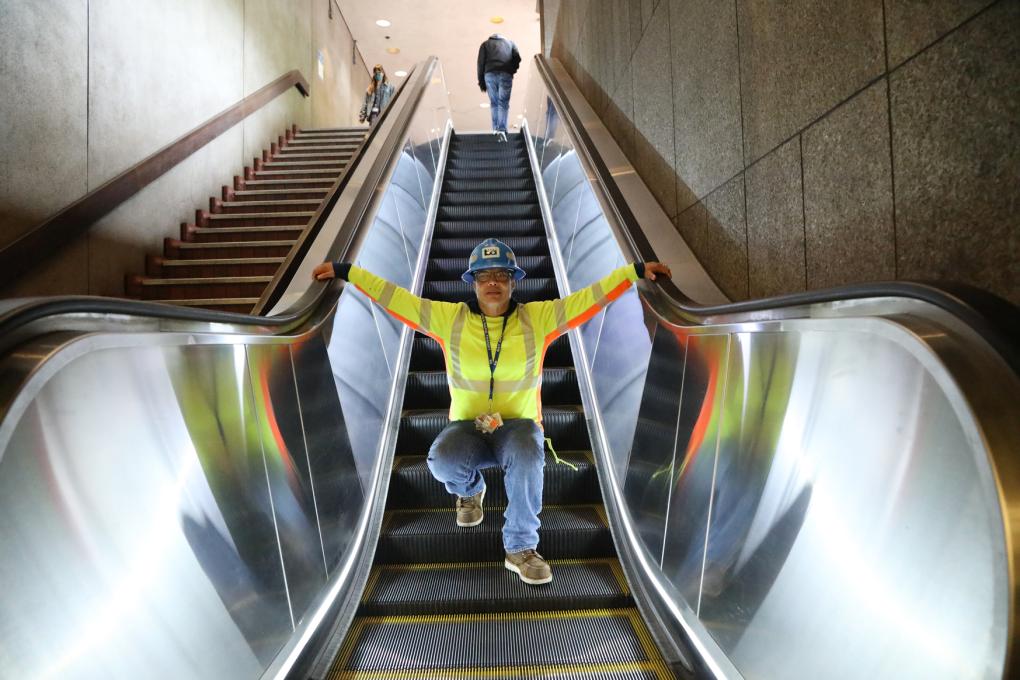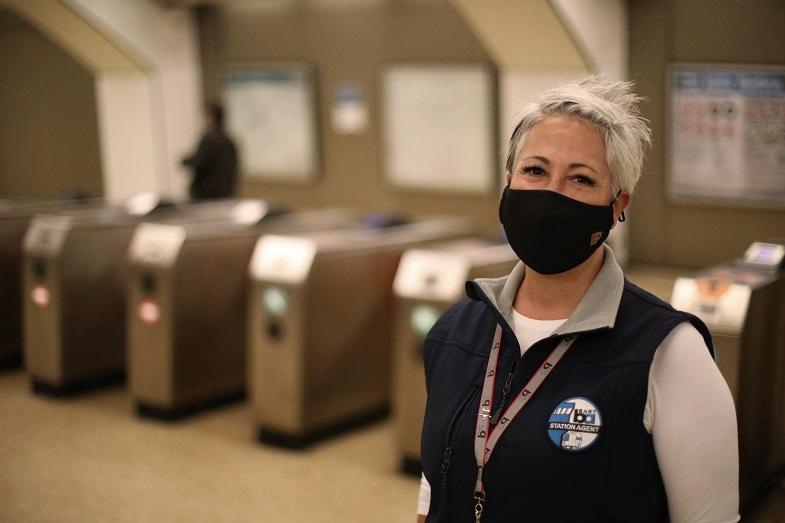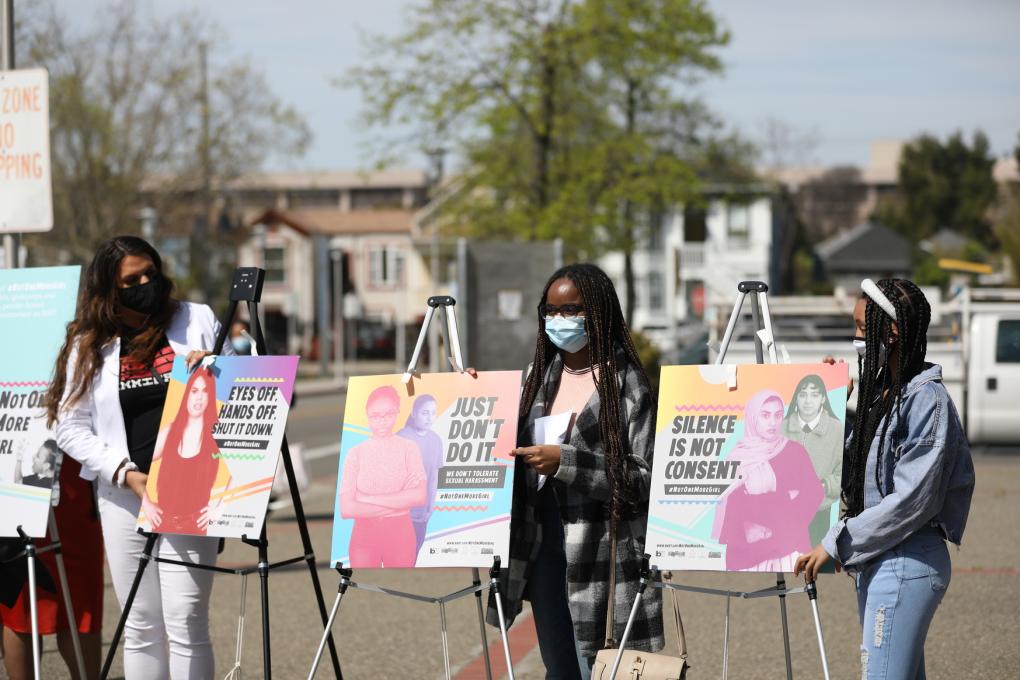Search Results
From the fields of the Central Valley to the hallways of BART, our new Director of the Office of Civil Rights fights for the public good
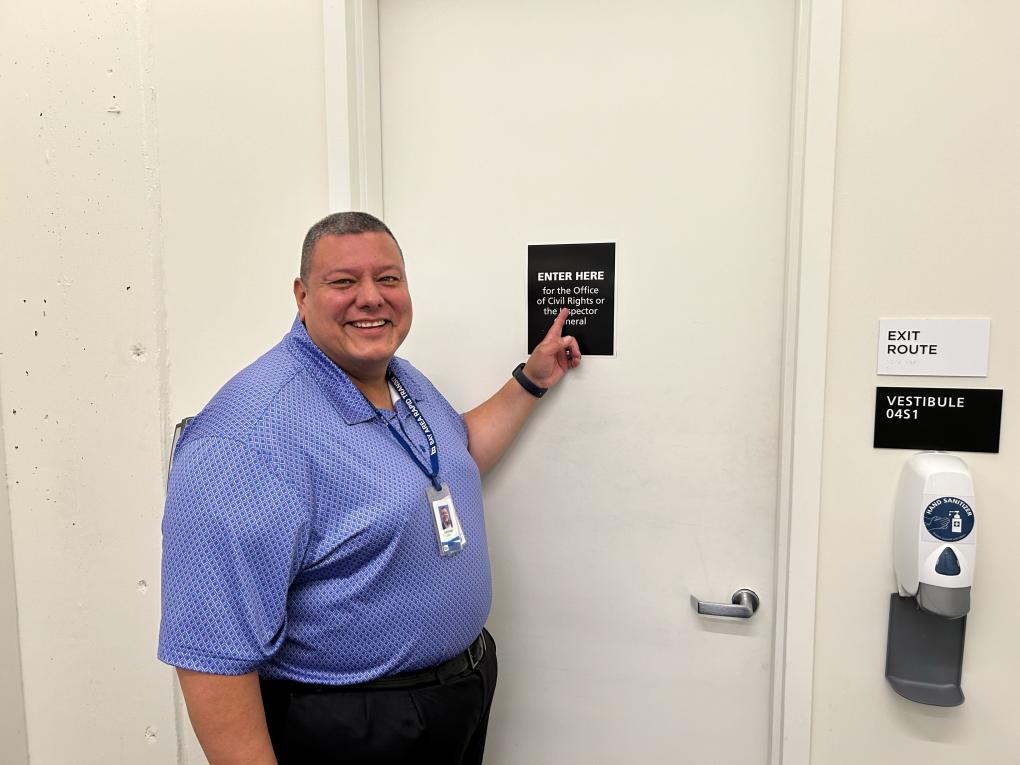
Rudy Garza, BART’s new Director of the Office of Civil Rights.
This Hispanic Heritage Month, BART is proud to celebrate employees with Hispanic and Latino heritage, who enrich our organization and the community at large. Over 15% of BART's workforce identifies as Hispanic and Latino, and we will be celebrating them throughout the month with additional stories and internal gatherings.
Hispanic Heritage Month runs from Sept. 15 to Oct. 15.
Rudy Garza and his fellow investigators from the U.S. Department of Labor were up at dawn one morning in the late 90s for a surprise inspection of crops in California’s Central Valley when they made a disturbing discovery.
“We saw kids working the fields,” said Garza, BART’s new Director of the Office of Civil Rights. “There were even infants out there.”
Garza’s team referred the children to social workers, seized the entire crop, and started an investigation that ended with significant civil penalties for the farmers, including back wages paid.
His time patrolling the fields in the 1990s was a turning point for Garza, the grandchild of Central Valley farm workers himself.
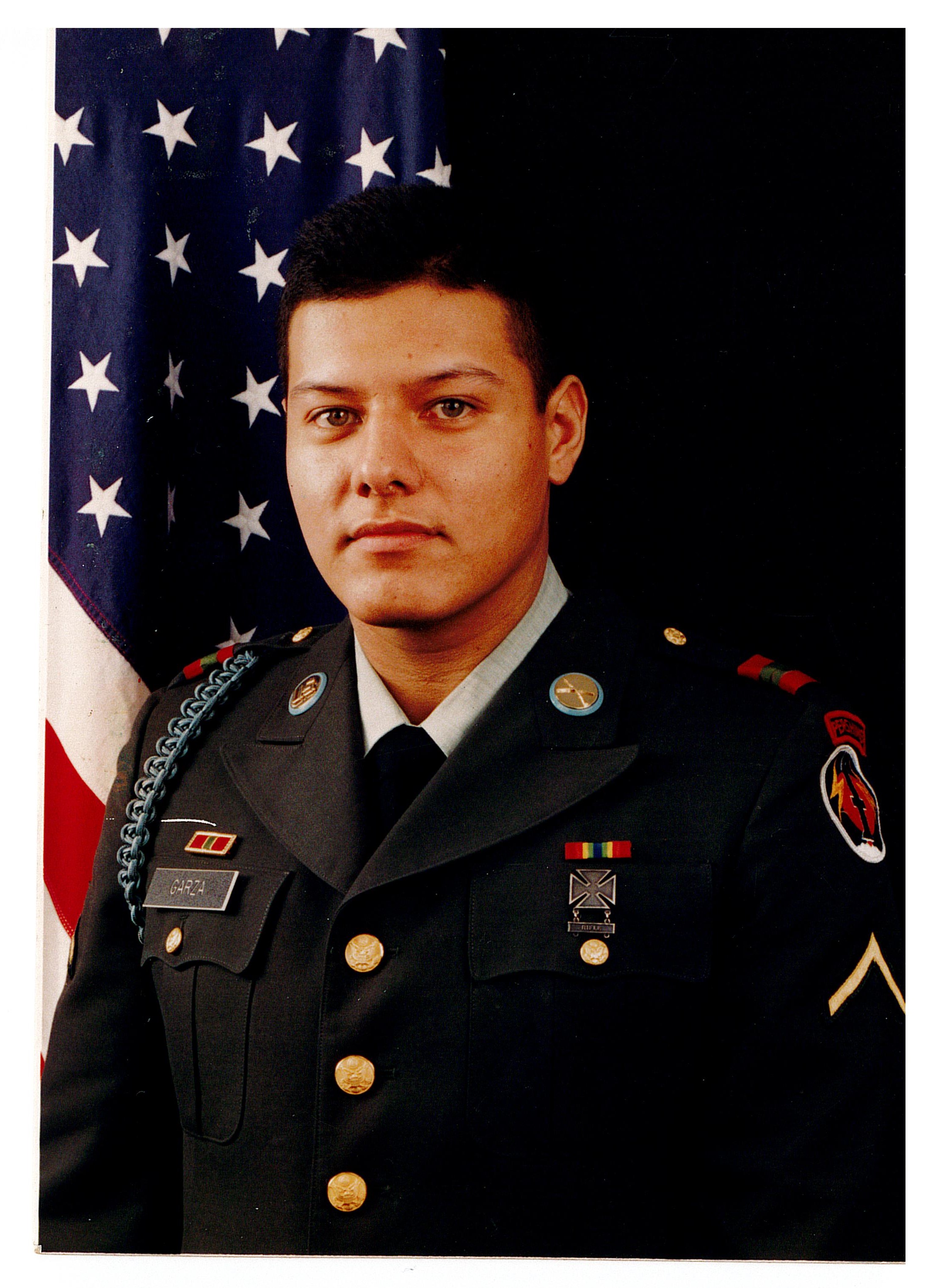
Garza is deeply influenced by his family’s journey to California. His grandmother immigrated from Mexico and met his grandfather, a veteran of World War II, in the southwest. They eventually made their way to Fresno, living in tents while working the fields. At the end of each work day, Garza’s grandfather would come home to construct the family’s future two-bedroom house with his own two hands.
“I am proud to come from an immigrant background and demonstrate that immigrants -- all immigrants, not just Hispanic immigrants -- are the backbone of this country,” he said, “where hard work and never giving up is the foundation of who you are.”
Garza entered the military at 17. While serving, he saw the Berlin Wall fall; Germany win the World Cup; and the decommissioning of the Pershing nuclear missile arsenal as the Cold War came to a close.
When Garza came back home, he had stints in law enforcement and even worked as a part-time high school football coach back in Fresno. But his work at the Department of Labor gave him a new sense of purpose.
“That was really my first taste of civil rights,” he said. “I really enjoyed that, protecting the public good.”

Rudy Garza during his time in the Army.
Garza’s career would take him on a tour across California government, always in roles ensuring complex laws were carried out to ensure the public’s rights were being upheld.
There was his time at the Fair Political Practices Commission, investigating campaign finance violations. Then he worked to ensure incarcerated people received proper care at the California Correctional Health Care Services. That was followed by a job as a manager at the State Department of Public Health, where he made sure patients were receiving proper nursing care. Just before arriving at BART, he worked as the California Highway Patrol’s Civil Rights Officer.
Garza is thrilled to join BART, a large, complex organization with a strong public mission.
“We ensure that everyone has equal access to BART’s programs, our trains, the ability to contract with us,” he said of the Office of Civil Rights.
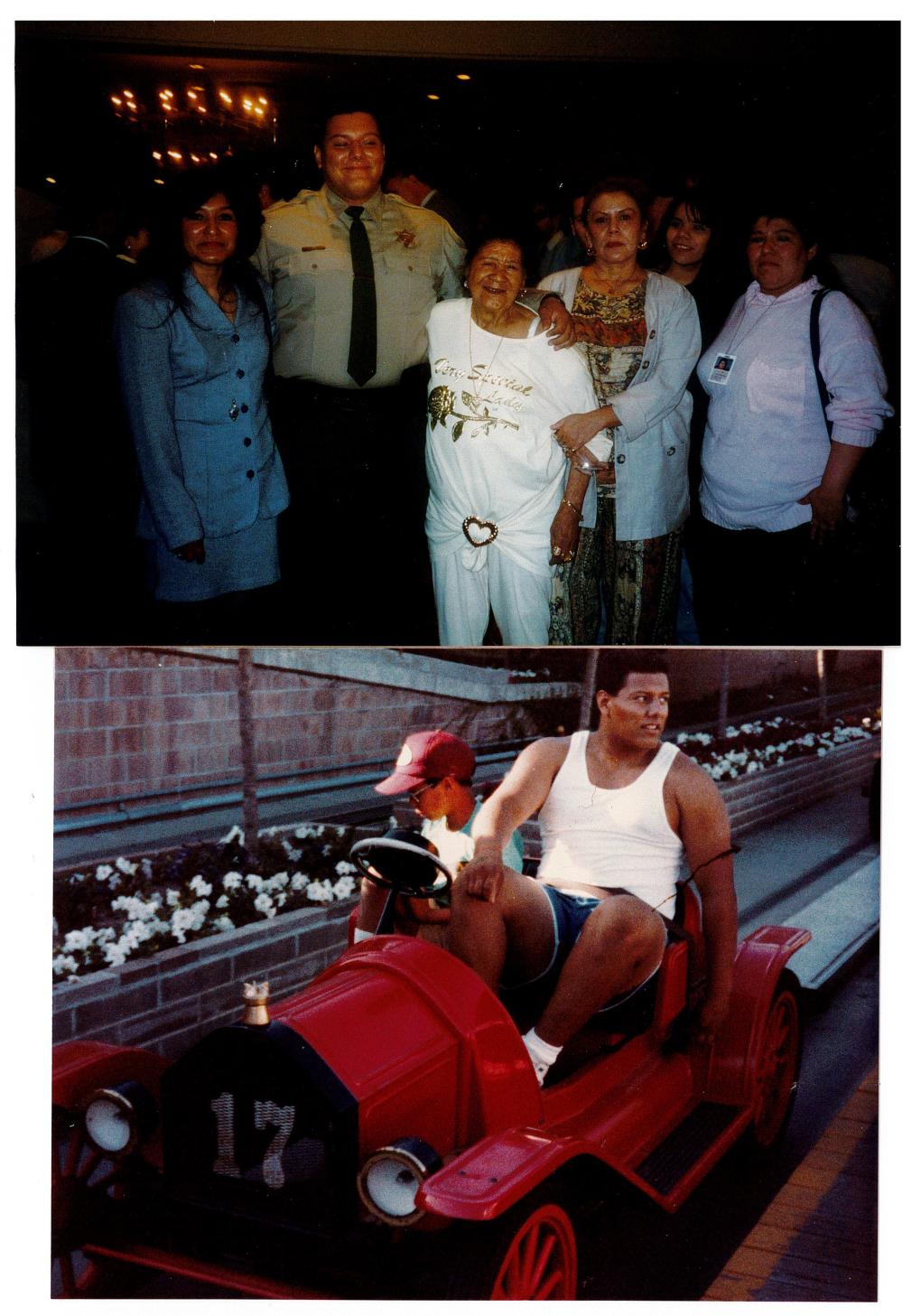
Top: Rudy Garza with this family during his swearing in ceremony as a Fresno County Sheriff's deputy. Bottom: Rudy with his younger brother.
Garza has been impressed with the level of expertise and depth of talent at BART, not just among the Office of Civil Rights staff but across the District.
“They're all very highly intelligent people. They see beyond the bend in the curve,” he said of his colleagues.
Garza sees the Office of Civil Rights playing a big role in BART’s continued success and sustainability in the Bay Area.
“I am committed to ensuring we provide contracting opportunities for small and disadvantaged business enterprises, along with women- and minority-owned business enterprises to help BART continue to provide safe, reliable, and clean transit service to the residents of the communities we serve.”
During Hispanic Heritage Month, Garza likes to return to Victor Villaseñor's epic novel Rain of Gold. It’s a tale of magical realism and a family’s saga of struggle crossing the border and making a life in the U.S. It also serves as a reminder that the Hispanic community is not a monolith. Whether you are Cuban American, Puerto Rican, Latino, Latinx, Chicano -- there is a rich mix of heritages and backgrounds that make up this diverse community and are celebrated during Hispanic Heritage Month.
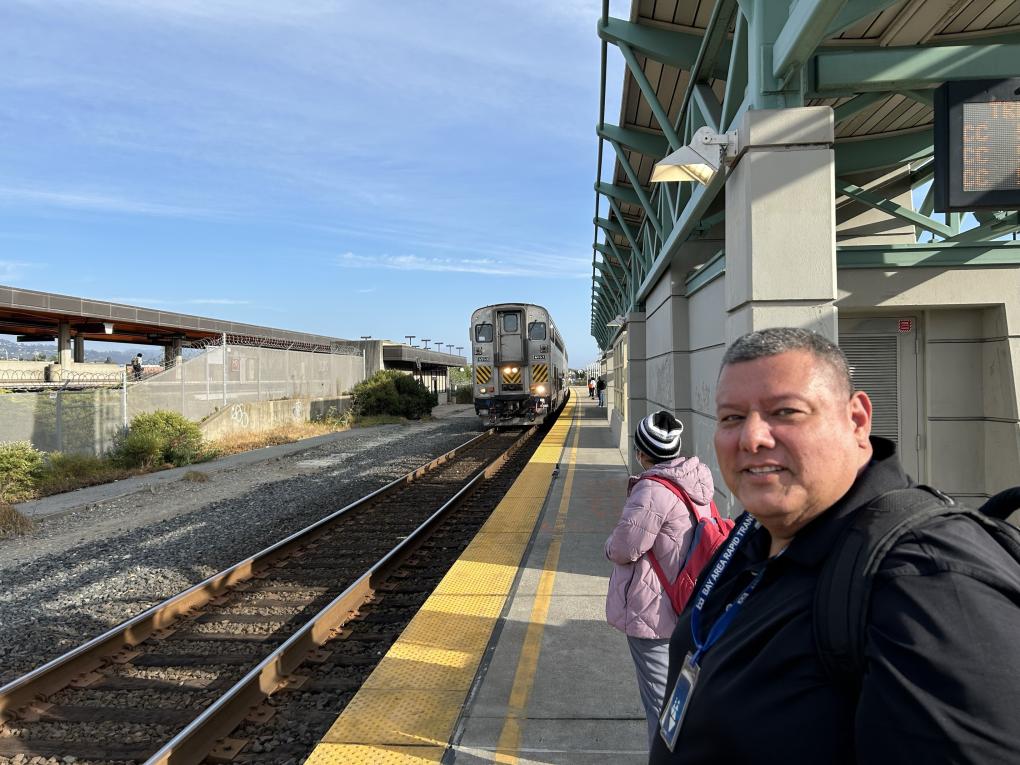
Rudy commutes by BART and Capitol Corridor from Sacramento.
Pittsburg Center
Take BART to Oakland Museum's 15th Annual Dias de los Muertos Celebration
Dancing skeletons and sugar skulls return as the Oakland Museum of California hosts its 15th annual Días de los Muertos celebration. The exhibition opens Wednesday, October 8, continuing through December 7. Guest curator Fernando Hernández titled the exhibition "Evolution of a Sacred Space: Días de los
We want to hear from you! Tell us your favorite BART story and enter to win a $100 gift card
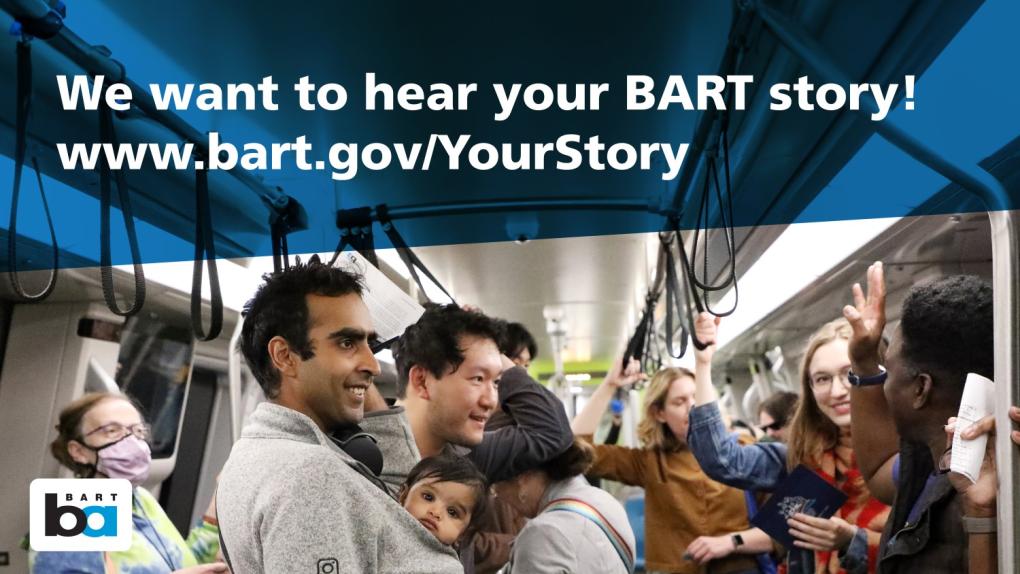
On Tuesday, Sept. 5, 2023, BART is launching a call for riders’ BART stories. We want to hear what BART means to you and gain insight into how we can continue to improve.
Do you have a favorite BART memory? Have you met a dear friend or life partner aboard a train? Did you take BART to a seminal life event? Have you been sitting on a unique idea to improve the system? We’d like to hear it.
To answer our questions, visit bart.gov/YourStory. We may contact you to learn more about your BART experience for future articles and communications (but only if you give us permission). You have the option to remain anonymous or share select information. Once you've answered the questions, you can enter a drawing to win one of three $100 e-gift cards. We’ll be sharing these stories in the coming months.
This call for stories is one aspect of our Role in the Region Study, which provides insight into emerging trends and outlines BART’s benefits to the Bay Area through illustrative data, personal narratives, and factsheets, culminating in a comprehensive final report. The final report is anticipated to be completed in Spring 2024. You can keep up to date with the project and explore factsheets at bart.gov/RoleintheRegion.
These materials highlight BART’s essential role in the region’s success as well as the compelling need for the continued funding and support of this essential transportation system. This study further develops the analyses and values illustrated in BART’s Transit Saves campaign and builds upon the findings from the 2016 Role in the Region Study.
This Transit Month, ride BART and tell us what it means to you!
Answer the questions and share your story at bart.gov/YourStory.
Women's History Month 2024: BART celebrates the trailblazing women who have shaped our world from past to present
Today, March 1, marks the beginning of Women’s History Month, a time to recognize and celebrate the vital role women have played – and continue to play – in American history, including the history of public transportation, which has been shaped and transformed by women.
BART is home to an amazingly diverse workforce with women serving in crucial roles across the agency, from trackworkers and train operators to executives and our Board of Directors, which is composed of a majority of women.
To spotlight just a few exceptional women in the BART family:
Tera Stokes-Hankins is the first woman to serve as Chief Transportation Officer at BART. Tera started as a part-time station agent in 1995 nearly fresh out of college. Since her hiring, she has been promoted six times! Tera says she is motivated to work hard each and every day because “if BART’s not running, that means people can’t get to an interview or an appointment or class. To get up every day and make sure we’re ready to go and putting our best foot forward – that keeps me going." Read more about Tera’s BART journey here.
Thu Nguyen, a track operator, came to the Bay Area a few years ago with her daughter and just $300 in her pocket. She didn’t have housing or a job, but she eventually landed at Cypress Mandela Training Center, which offers free pre-apprenticeship program for Bay Area residents and helps connect them with employment opportunities, including at BART. Foreworker Jaime Ramirez said Nguyen is “no holds barred.” He added: “She’s not afraid of the work. She just goes for it.” Read more about Thu here.
Stephine Barnes, a Crisis Intervention Specialist in BART’s Progressive Policing Bureau, recently won a Rider First Award in recognition of her work to move Bay Area transit forward. Stephine has worked for BART for more than two decades, and in her role as a CIS, she has changed the lives of many individuals. Her work has focused on reducing prison recidivism and advocating for those facing homelessness through intervention/prevention, de-escalation, case management, working with community partners, networking, and family reunification. Read more about Stephine here.

From left to right: Tera Stokes-Hankins, Thu Nguyen, and Stephine Barnes.
BART is committed to recognizing, supporting, and uplifting all the passionate and hardworking women in the BART family by fostering a culture that values diversity, equity, and inclusion – the themes of Women’s History Month 2024.
We thank every single one of the women at BART, who are working every day to make the system better for everyone.
Happy Women’s History Month!
BART's annual Holiday Toy Drive collects more than 1,500 toys and $1,700 in gift card donations

Left Image: A STEAM event with one of SCDC’s collaborative partners, "P.I.E.F.E.S.T." (Pacific Islanders Encouraging Fun, Engineering, Science & Technology). Right image: Participants from CYC’s Bayview Youth Advocates program work on an exercise of gratitude.
Update: The BART Holiday Toy Drive collected more than 1,500 toys and $1,700 in gift card donations this year. The toys were presented to the two recipient organizations, the Samoan Community Development Center of San Francisco (SCDC) and the Community Youth Center of San Francisco (CYC), during the December 21 meeting of the BART Board of Directors.
Each winter, BART gives back to the communities it serves with its annual Holiday Toy Drive, soliciting donations in the form of new, unwrapped toys and gift cards from employees. The donations are gifted to local organizations, selected by the BART Board President from within their district, in a joyful ceremony during the final BART Board meeting of each year.
Board President Janice Li selected two recipient organizations this year: the Samoan Community Development Center of San Francisco (SCDC) and the Community Youth Center of San Francisco (CYC).
“For immigrants like me, holiday time is community time. Growing up, it was important to me to have community spaces where I could speak my language, celebrate my culture, and be proud of my heritage,” Li said. “Organizations like CYC and SCDC are so critical to building welcoming and healthy communities"
She continued: “Both of these organizations have humble beginnings and have always been rooted in supporting youth and families in the community. I love that they believe in and know how to do transformational work, particularly for AAPI communities in the southeastern neighborhoods of San Francisco, where there are fewer resources and services available.”
BART’s Office of External Affairs and BART Police sponsor the drive each year. In 2022, BART collected more than 750 toys and $500 in gift cards for Building Opportunities for Self-Sufficiency.
“The Holiday Toy Drive is the highlight of the season for many BART employees. We are gratified to spread joy and cheer to local children and their families, many of whom rely on our system to get to school, to work, to appointments, and to gatherings with their families during the holidays,” said Rodd Lee, Assistant General Manager of External Affairs at BART. “It is a special honor to work with historic organizations like SCDC and CYC, who have long been committed to making the Bay Area a better place for our youth.”
SCDC and CYC support San Francisco youth with an incredible array of services, including afterschool programs, summer camps, mentorship programs, mental and physical health services, and enrichment activities. CYC was founded in San Francisco Chinatown in 1970 and serves youth across the city, aiming to provide them a sense of belonging as well as essential tools to succeed at school and in life. SCDC is located in the Visitacion Valley neighborhood of San Francisco, where it has worked for more than three decades to improve the quality of life for Samoans and Pacific Islanders in the Bay Area. It is the only funded organization in San Francisco that is devoted to supporting these populations.
Every single one of Treanna Noa’s seven children, ranging in ages from five to 21, has participated in SCDC’s programs.
“SCDC has opened so many doors for us. I don’t know where we would be without the center,” Noa said.
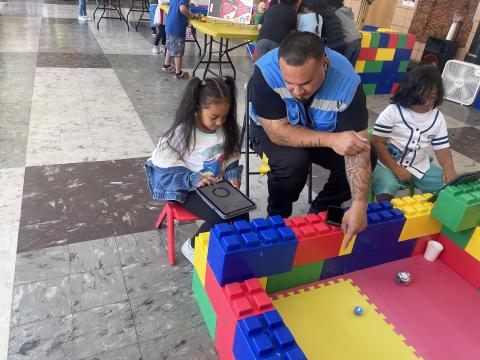

Top image: A STEAM event with one of SCDC’s collaborative partners, "P.I.E.F.E.S.T." (Pacific Islanders Encouraging Fun, Engineering, Science & Technology). Bottom image: A snapshot of SCDC’s PIYA Summer Celebration 2023.
SCDC “picks up where my kids’ schools are lacking,” she said. The children’s schools don’t have STEAM programs, for example, but every Wednesday, SCDC brings in a STEAM facilitator to teach kids about science and technology after school. The facilitator is a member of the Pacific Islander community, Noa said, and therefore understands the unique challenges her children experience in school and at home.
“My kids aren’t as open as they could be with their schoolteachers. They think, oh, you wouldn’t understand what I’m talking about; I’m Samoan, and we do things a bit differently,” she said. “Having someone who looks like you and who can relate to you, it brings your guard down and you’re more open to receiving information.”
Noa said SCDC even picks her younger children up from school, and the center provides them with a safe, supportive space where they can finish their homework until Noa gets off work. She said if SCDC didn’t exist, she wouldn’t be able to afford childcare.
“They do so much for us, including things we didn’t even ask for,” she said, like hosting drive-through graduations for her children when they finished high school and kindergarten during the pandemic.
“They have made life so much easier for us,” she said.
Susan Tan’s son, Ben, began attending CYC's afterschool program when he was in middle school. She credits the organization with helping him become the person he is today.
Ben was a preteen when he and his mother immigrated to San Francisco from China. They didn’t know English very well and assimilating was difficult. Ben struggled in school, behaviorally and academically, and his mother recognized his struggles as “a cry for help.”

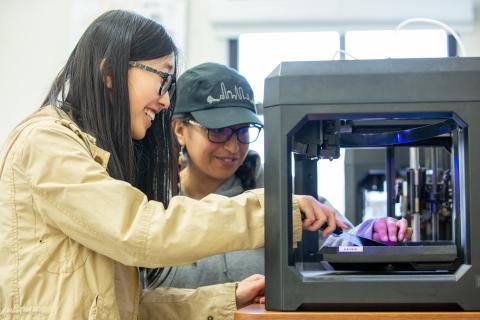
Top image: Erica Mitchell works with a student from Redding Elementary on academics at CYC’s afterschool program. Bottom image: Stefanie Almendares works with a student from Aptos Middle School during a 3D printing workshop as part of CYC’s STEM program.
“I reached out to everyone I knew to see if anyone could help, and CYC was one of the names that came up,” Tan said, speaking through a translator. She took a parenting class first, where she learned to be more patient and communicative, and then enrolled Ben in CYC's afterschool program. In the span of just two or three years, she said she saw him blossom and transform.
“It became a second home for him. I was working so much, and there was nowhere for him to go after school,” she said. At CYC, she knew Ben was safe.
Today, Ben is studying math and computer science at the University of California at Santa Cruz. Last summer while home from school, he participated in CYC’s transitional-age-youth program.
Administrators at CYC and SCDC said they are honored to be this year’s BART Holiday Toy Drive recipients. They emphasized the toys will immensely brighten their youth participants’ holidays. The organizations will receive the toy donations during the December 21 BART Board meeting at BART Headquarters.
“The majority of our youth come from low-income families, and they don’t necessarily have the means to give their kids many presents, if any presents. To provide families with something as simple as a toy can have a profound impact,” said Ben Mok, CYC Community Relations Manager.
Michelle Wu, a communications consultant for CYC, added: “One of the things we believe in the most is providing access to things, including providing access to moments of joy.” The toys from the drive will specifically go to youth at CYC’s Bayview program.
Lynn Peleseuma, Senior Program Specialist at SCDC, said her organization hosts a holiday celebration every winter before the kids start winter break. There’s caroling, cultural dancing, and festive food and drink. At the gathering, Peleseuma and her colleagues “want to make sure each and every kid has a toy to unwrap.”
“To get toys from BART, from folks in our community, is a blessing for us,” she said. “And it’s a blessing to our kids and their parents.”
If you are a member of the public interested in gifting a donation to SCDC or CYC, you can visit their websites here and here.
Debora Allen
Montgomery St.
BART's low-income fare discount to increase to 50% on Jan. 1: Here's how the program impacts an East Oakland community
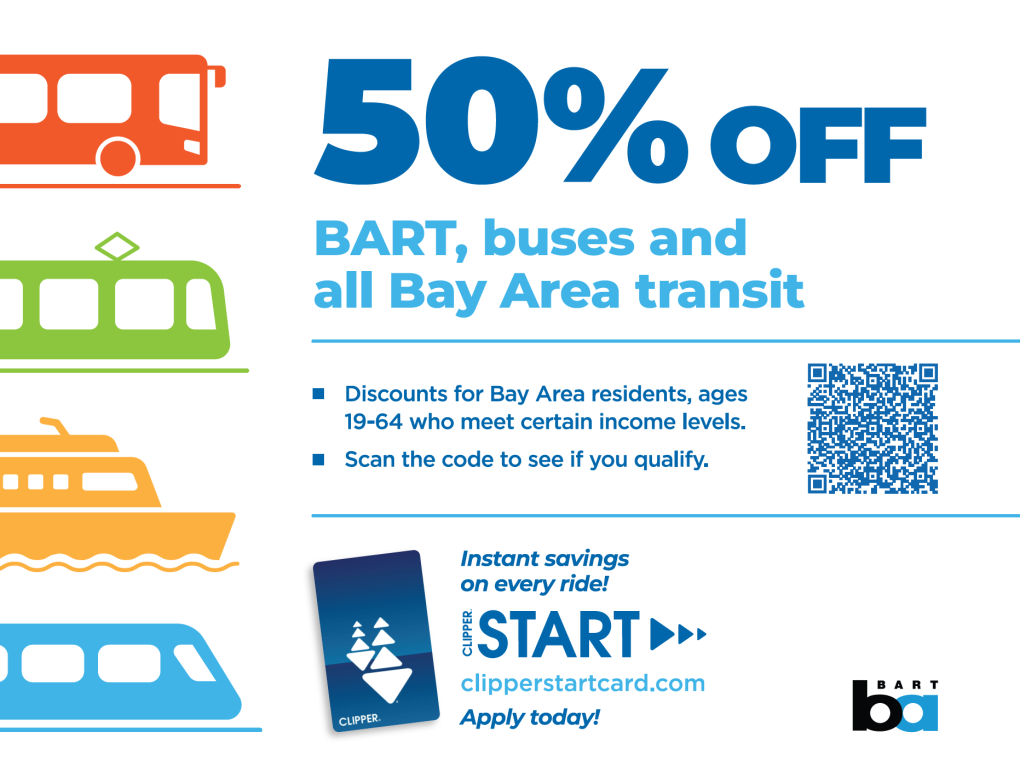
BART is helping lower-income riders pay their fare by increasing its Clipper START means-based fare discount from 20% to 50%, beginning Monday, Jan. 1, 2024. This means that Clipper START users will pay half the regular BART fare.
Clipper START, a pilot program facilitated by the Metropolitan Transportation Commission, offers the discount for Bay Area residents ages 19 to 64 whose incomes are less than 200% of the federal poverty level. Clipper START is accepted by more than 20 regional transit operators. Those who qualify can apply for the program here.
Keep scrolling to read about an East Oakland-based organization's efforts to register people for Clipper START and hear about its impact on community members.
BART offers multiple fare discounts in addition to Clipper START, including discounts for youth (50% off with a Youth Clipper card), seniors (62.5% off with a Senior Clipper card), passengers under 65 with qualifying disabilities (62.5% off with an RTC Clipper card), and a High-Value Discount (adult Clipper users who buy $45 or $60 Clipper cards when autoload is set up get $48 and $64 worth of value, or a 6.25% discount).
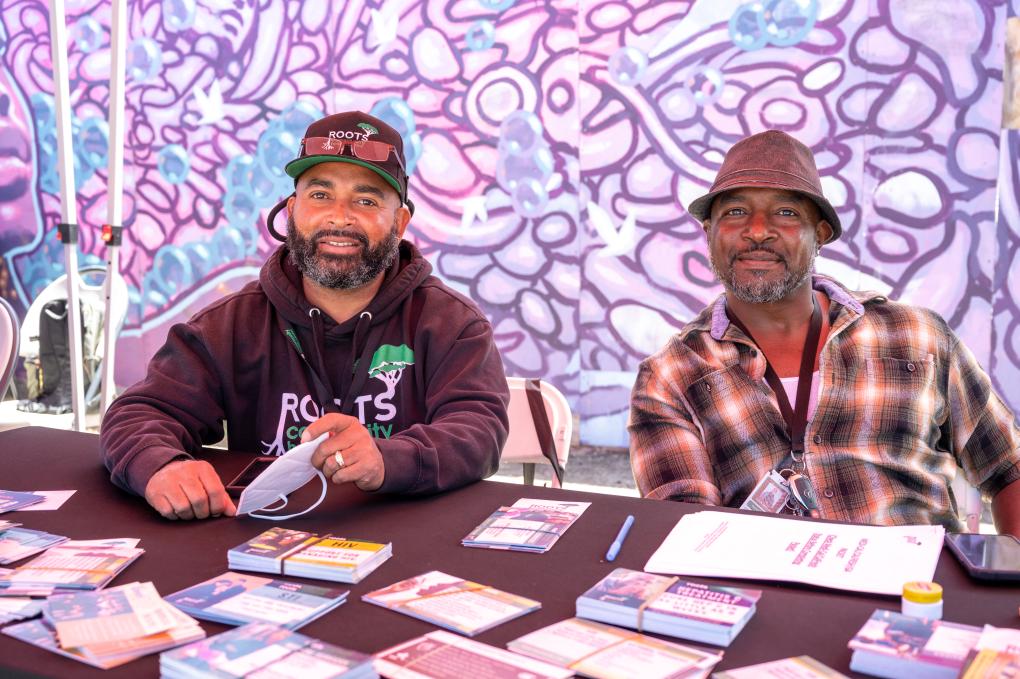
Members of the Roots Community Health Center outreach team. Roots conducts outreach to promote and register community members for Clipper START.
“When you have a Clipper card, your first thought isn’t 'I can't' but ‘What time can I get there?’” says Jamaica Sowell, who has witnessed firsthand the importance of increasing access to affordable transportation in the Bay Area.
Sowell is the Director of Programs and Policy at Roots Community Health Center, an organization working to uplift people impacted by systemic inequities and poverty, especially in a stretch of the East Oakland community known as the 40x40, where nearly half of Black families living in poverty in Oakland reside.
Since 2022, Roots has been conducting outreach to promote and register community members for Clipper START, a pilot program from the Metropolitan Transportation Commission (MTC) that offers discounts on transit fares. To qualify, applicants must be Bay Area residents between the ages 19 and 64 with a gross annual income at or below 200% of the federal poverty level. Beginning January 1, 2024, BART’s Clipper START discount increased from 20% to 50%, meaning users pay half the regular BART fare.
Roots Clinic has a holistic approach for supporting the health and well-being of the communities it serves. Enabling access to transportation, especially affordable transportation, is a key piece of the puzzle.
“Mobility has a lot to do with access, including things like health care,” said Sowell. If people don’t have the means to get to the Roots’ clinics, “they’re not going to come.”
Mobility is a central component of one's physical and mental health, Sowell stressed. Transportation, especially affordable transportation, ensures that people can access things like medical appointments, mental health care, treatment programs, benefits enrollment support, and other crucial services that organizations like Roots offer.
But going to appointments is "just one facet” of the benefits of public transportation to community members, Sowell said. Transportation gives people easier access to civic engagement activities, like city council meetings, and takes people to parks and green spaces, where you can walk, soak up sunshine, picnic with your family, and play sports with friends. For some people, just getting out of their neighborhood for a few hours is healing in and of itself.
“Transit takes you places outside your own block, including places you might not have had access to before,” Sowell said.
Clipper START actively conducts outreach to organizations like Roots, which have well-established lines of communication and trust within the communities they serve. Sowell said Roots jumped at the chance to partner with MTC on Clipper START because her organization understands the specific needs of the East Oakland community.
“When our people hear Roots is partnering with MTC and BART, it automatically establishes buy-in,” she said. “Our community members trust us and trust that we’ve vetted the program.”
Since Clipper START launched in June 2020, MTC reports that more than 30,000 people have signed up for the program. Between 2020 and 2022, the period for which the most recent data is available from MTC, Clipper START users took more than 1 million transit trips, with most of these trips taken on BART (40% of total trips).
“[Clipper START] makes me want to do more [with my family] on public transportation for necessity, but also for fun, like going to San Francisco for free museum days,” one user said.
As awareness of the program grows around the region, so too does usage.
That’s in no small part thanks to organizations like Roots, whose outreach teams promote the program at community events, apartment complexes, encampments, faith-based organizations, and door to door. Roots is exploring additional outreach avenues for the new year.
“Being able to tap into a discounted transportation platform like this is huge for our folks,” Sowell said. “Clipper START has been beneficial in improving transportation accessibility to our East Oakland community, and we look forward to our continued partnership in the new year.”
